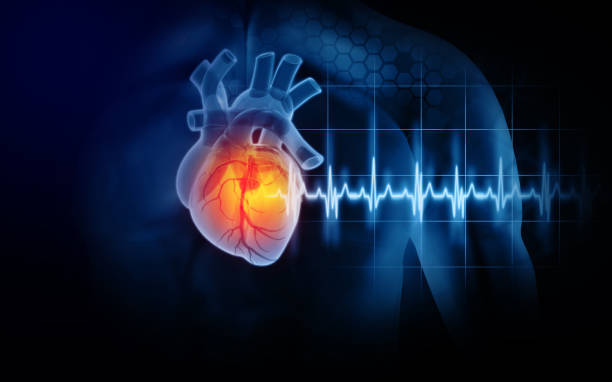
The Most Common and Silent Symptoms of a Heart Attack
Heart disease remains a leading cause of death worldwide, with heart attacks being a significant contributor. Early detection is crucial in managing and surviving a heart attack, but not all heart attacks present with the classic, well-known symptoms. Some are ‘silent,’ showing subtle signs that can easily be overlooked. The goal of this post is to shed light on both the most common and silent symptoms of a heart attack, with the hope of raising awareness and potentially saving lives.
A heart attack, medically known as a myocardial infarction, occurs when blood flow to a part of the heart is blocked, usually by a blood clot. This blockage can damage or destroy part of the heart muscle, leading to serious health complications or even death. Understanding heart attacks begins with understanding the heart itself – a muscular organ that pumps blood throughout the body. When the heart doesn’t receive enough oxygen-rich blood, it sends out signals in the form of symptoms.

The causes of heart attacks are varied, but they often stem from coronary artery disease
This condition develops when the major blood vessels that supply the heart with blood, oxygen, and nutrients (coronary arteries) become damaged or diseased. Cholesterol-containing deposits (plaque) in your arteries and inflammation are usually to blame for coronary artery disease.
The most common symptoms of heart attacks are well-documented and widely known. Chest pain or discomfort, often described as a feeling of pressure, squeezing, or fullness, is the most common sign. This discomfort can extend to the arms, particularly the left arm, as well as the neck, jaw, back, and stomach.
Another common symptom is shortness of breath, which can occur with or without chest discomfort. Additional symptoms can include cold sweat, nausea, light-headedness, or sudden dizziness. These symptoms occur because the heart is struggling to pump blood effectively due to a blocked artery. It’s important to note that these symptoms can vary in intensity and duration, and not everyone who has a heart attack experiences the same symptoms.

Silent Symptoms of Heart Attacks
‘Silent’ heart attacks are those that occur without causing the individual to experience the typical symptoms of a heart attack. Instead, they may experience more subtle signs, such as mild discomfort in the chest, arms, or jaw that comes and goes, unusual fatigue, and disturbances in sleep patterns. Other silent symptoms can include mild shortness of breath, mild chest pain, nausea, and even heartburn.
These symptoms are often dismissed as signs of aging or the effects of a stressful day. However, they can indicate a serious problem. Silent heart attacks are particularly dangerous because they can go unnoticed and untreated, leading to significant heart damage.

The Danger of Silent Heart Attacks
Silent heart attacks are a significant health concern because they often go unnoticed and, therefore, untreated. The absence of classic symptoms can lead individuals to dismiss their discomfort as something less serious, such as indigestion or muscle pain. However, just like a typical heart attack, a silent heart attack can cause permanent damage to the heart muscle.
The danger of silent heart attacks lies in their stealthy nature. They can lead to severe complications, such as heart failure, without the individual even realizing they’ve had a heart attack. Furthermore, having one silent heart attack increases the risk of having another heart attack, silent or otherwise, in the future. This makes it crucial to recognize and respond to the silent symptoms of a heart attack.

Who Is at Risk?
Certain factors increase the risk of heart attacks, including silent ones. These include age, with men over 45 and women over 55 being at higher risk, and family history of heart disease. Other risk factors include smoking, high blood pressure, high cholesterol, obesity, diabetes, and a sedentary lifestyle.
It’s important to note that while these factors increase the risk, heart attacks can occur in anyone, regardless of age or overall health. Even individuals who appear healthy and have no known risk factors can experience a heart attack. This is why understanding the symptoms, both common and silent, is crucial for everyone.

The Importance of Early Detection
Early detection of heart attacks is crucial for effective treatment and recovery. The sooner a heart attack is identified and treated, the less damage is done to the heart muscle. This can significantly improve the prognosis and reduce the risk of complications such as heart failure.
Recognizing the symptoms of a heart attack, seeking immediate medical attention, and getting prompt treatment can save a life. It’s important to remember that every minute counts when dealing with a heart attack. If you or someone else is experiencing symptoms, don’t wait to see if they go away. Call for emergency medical help immediately.
How To Respond to Symptoms
If you or someone else is experiencing heart attack symptoms, acting quickly is crucial. Call your local emergency number immediately. While waiting for medical help, try to stay calm and sit or lie down to reduce the strain on your heart.
Don’t ignore or dismiss the symptoms, even if they seem mild or you’re not sure they’re related to a heart attack. It’s better to seek medical help and find out it’s not a heart attack than to ignore the symptoms and suffer severe heart damage or death. Remember, early intervention is vital to surviving a heart attack and minimizing damage to the heart.
Preventing Heart Attacks
Preventing heart attacks involves managing known risk factors and leading a heart-healthy lifestyle. This includes regular exercise, a balanced diet rich in fruits, vegetables, lean proteins, and whole grains, and low in saturated fats, cholesterol, and sodium. Regular check-ups to monitor blood pressure, cholesterol levels, and blood sugar can also help in early detection of risk factors.
Quitting smoking, limiting alcohol consumption, managing stress, and maintaining a healthy weight are also crucial in preventing heart attacks. If you have chronic conditions like diabetes, high blood pressure, or high cholesterol, managing them effectively can significantly reduce your risk. Remember, prevention is always better than cure, and these lifestyle changes can make a significant difference in your heart health.
Be aware of: The Silent Symptoms of a Heart Attack!
Recognizing both the common and silent symptoms of a heart attack can be a matter of life and death. Silent heart attacks, in particular, pose a significant risk due to their subtle symptoms. It’s crucial for everyone, regardless of age or health status, to be aware of these symptoms and to seek immediate medical help if they experience them. Equally important is leading a heart-healthy lifestyle to prevent heart attacks in the first place. Let’s spread the word and raise awareness about this silent killer to protect yourself and your loved ones.
 Holidays
Holidays  Girl's Behavior
Girl's Behavior  Guy's Behavior
Guy's Behavior  Flirting
Flirting  Dating
Dating  Relationships
Relationships  Fashion & Beauty
Fashion & Beauty  Health & Fitness
Health & Fitness  Marriage & Weddings
Marriage & Weddings  Shopping & Gifts
Shopping & Gifts  Technology & Internet
Technology & Internet  Break Up & Divorce
Break Up & Divorce  Education & Career
Education & Career  Entertainment & Arts
Entertainment & Arts  Family & Friends
Family & Friends  Food & Beverage
Food & Beverage  Hobbies & Leisure
Hobbies & Leisure  Other
Other  Religion & Spirituality
Religion & Spirituality  Society & Politics
Society & Politics  Sports
Sports  Travel
Travel  Trending & News
Trending & News
Most Helpful Opinions